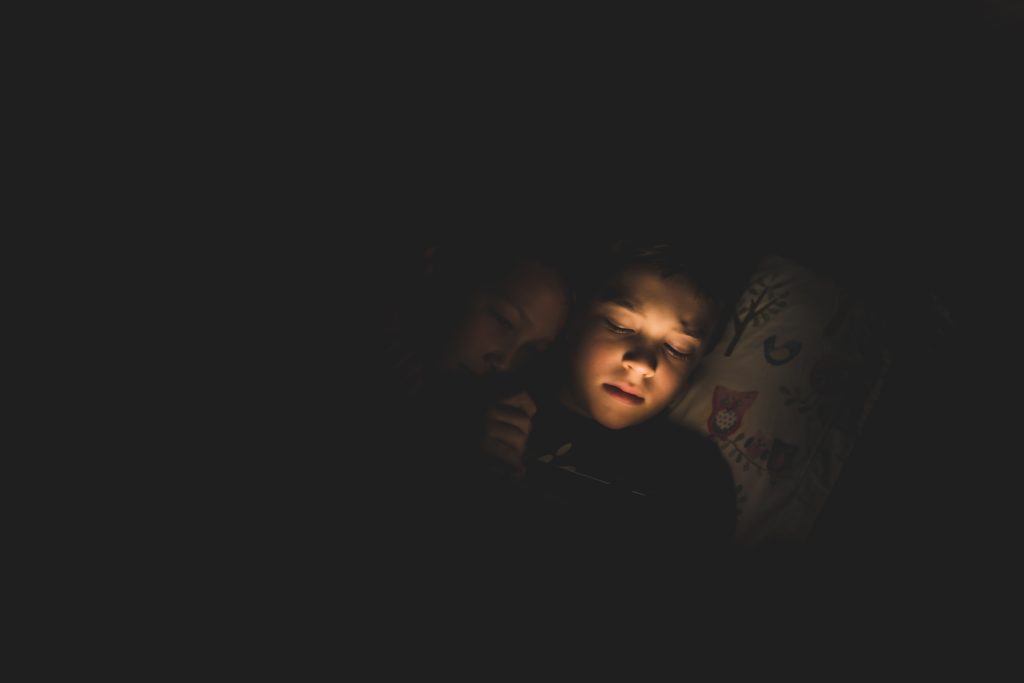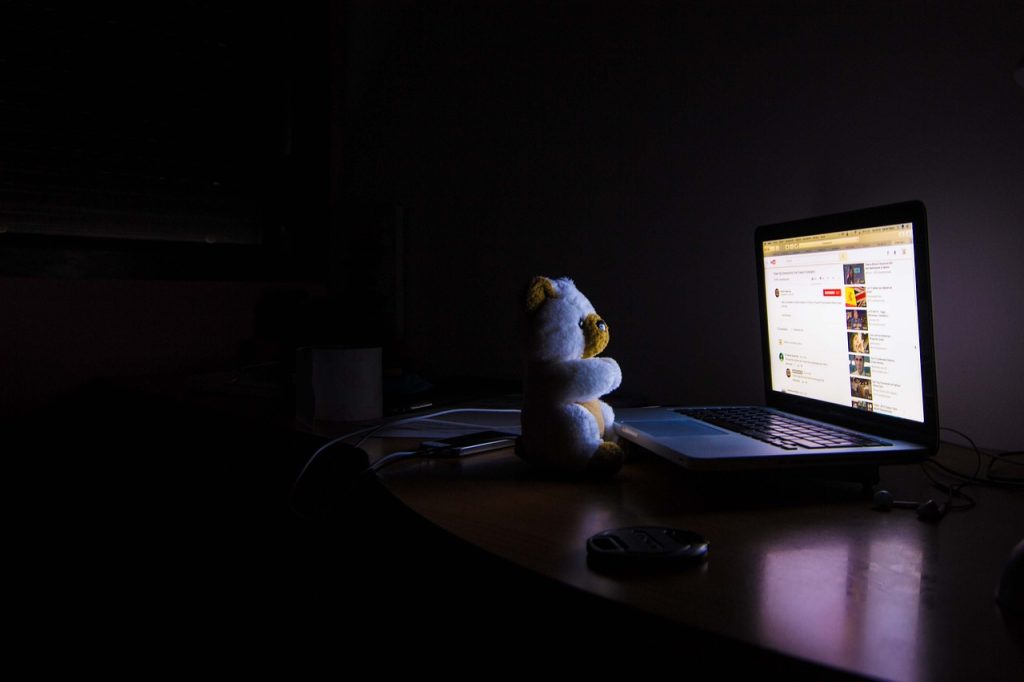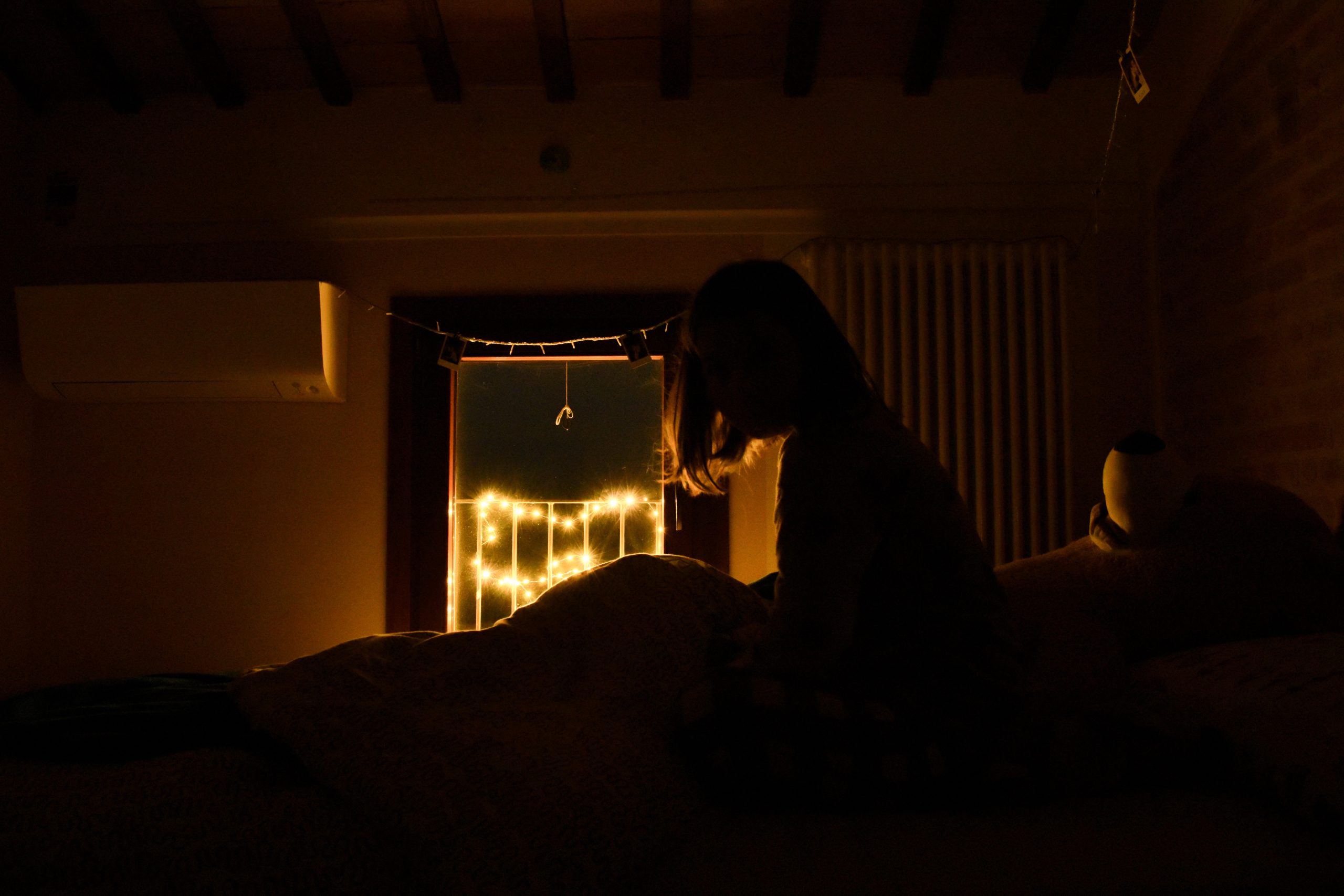When you think of a child with sleep problems, what is the image that comes to mind? A Crying baby? Yes, but did you know that older children and teens can have problems sleeping too. They may have trouble going to sleep or they may find themselves waking up in the night. It could even be a combination of both. If you are experiencing this in your household you may want to know how to treat insomnia in children.
One thing that is sure is that not getting a good night’s sleep can and will affect your child’s mood. This can lead to behavior problems and even discipline problems at school and at home.
What is Childhood Insomnia
Childhood insomnia is the same that affects adults. It is characterized as having trouble falling asleep, trouble staying asleep or not feeling rested after a normal amount of sleep. Symptoms of childhood insomnia include:
- Feeling sleepy during the day
- A depressed mood
- Memory problems
- Decreased attention span
- Mood swings
- Aggressiveness
- Irritability
- Hyperactivity
What Causes Childhood Insomnia

One of the most common reasons for childhood insomnia is not getting enough sleep. This happens when children go to bed too late. This is because their parents may have unrealistic sleep expectations, or they may be over-scheduled. There are also those instances where they may be staying up late talking on the phone, watching TV or playing video games.
What are the sleep recommendations for children? Between 9 and 12 hours of sleep per day. If you set a realistic bedtime and your child still isn’t getting enough sleep, the most common causes of insomnia could be:
- Caffeine use
- Stress
- Poor sleep habits
- Snoring
- Side effects of some ADHD medications, Antidepressants, Corticosteroids and Anticonvulsants
- Coughing from uncontrolled asthma
- Itching from Eczema
- Depression
- Restless legs Syndrome
- Anxiety
- Autism and other Neurodevelopmental disorders
How to Treat Childhood Insomnia
Some parents may want to turn to a prescription drug to treat their child’s insomnia but it is better to first look at the potential for underlying conditions. There may be underlying psychological and medical problems that may be causing the insomnia. In treating these the insomnia can be treated and reversed.
An example would be with a child who snores loudly and has trouble breathing at night. In such an instance this child may need to have their adenoids and tonsils removed. This will get rid of their snoring and trouble breathing allowing them to stay asleep at night.
Another example is a child that may have poorly controlled asthma, this can cause them to cough at night which may cause them to wake up repeatedly. In this instance just a stronger asthma medication could decrease their asthma symptoms and improve their sleep quality as well as their time asleep.
It is also important to note that a lot of the sleep medications advertised on the TV have not received approval for use by children. There are times when your doctor may find it necessary to approve medications to help your child sleep better. Some of these include:
- Antihistamines though these may cause daytime drowsiness.
- Sedating antidepressants
- Risperdal if your child has behavior problems or Autism
- Clonidine if your children with behavior problems or ADHD
Unless there is an additional co-morbid diagnosis as the cause of insomnia in children, a prescription is never the first choice.
Do you struggle with Insomnia?
We have clinicians expert on Insomnia, feel free to read about them, or book a free consultation to review your situation.
How to Treat Insomnia in Children Without Drugs
Here’s a couple ways to treat insomnia without the use of drugs:
- Restrict spending time in bed outside of sleeping.
- Help them to keep a consistent sleep schedule to include weekends and on holidays.
- Teach them about relaxation such as visual imagery, progressive muscle relaxation and diaphragmatic breathing. They can in turn use these when they are ready to go to sleep.
- Stop all stimulating activities 30 minutes to an hour before bedtime.
- Encourage quiet activities to engage in for 10 to 20 minutes when they can’t fall asleep.
- Avoid caffeinated drinks and foods.
- Exercise regularly.
- Get them to see a child therapist. You can find one here at ESTADT.
ADHD and Insomnia

Children with ADHD and Insomnia are harder to treat since many of the symptoms overlap and some of the treatments for ADHD can cause insomnia. If your child is diagnosed with ADHD and their insomnia worsens after they start to take a prescription medication, then that could be the culprit.
For other children, their ADHD symptoms are what cause their insomnia. In these cases with just a small dose of a short acting stimulant administered in the afternoon can help them to sleep better that night.
Your pediatrician or a child psychiatrist can help you to determine the cause of your child’s sleep problems. Getting a good night’s sleep is very important especially in children with ADHD who have low quality sleep can make their ADHD symptoms worse.
Also, keep in mind that there they may be children with symptoms of ADHD who actually do have a sleep disorder and not ADHD.
If you feel like you need professional help on how to treat insomnia in children you can always request an appointment with one of our professionals.
Do you struggle with insomnia?
We have clinicians expert on insomnia, feel free to read about them, or book a free consultation to review your situation.
Do you struggle with Insomnia?
We have clinicians expert on Insomnia, feel free to read about them, or book a free consultation to review your situation.
